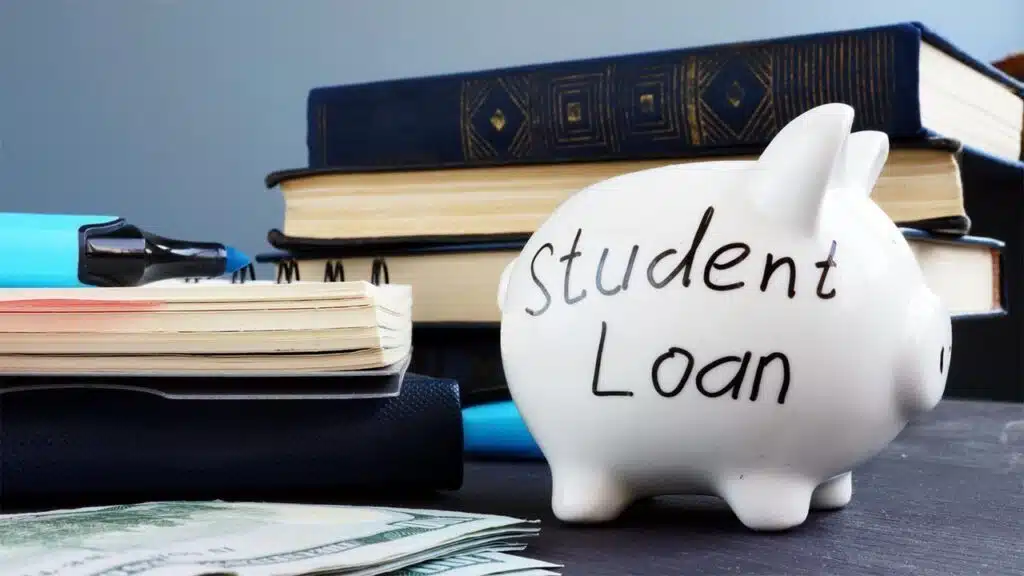Student loans can be a heavy burden for many people. Paying them off quickly can save you money and stress in the long run. There are several ways to speed up your loan repayment and get out of debt faster.
Want to take control of your student debt? This article will show you 8 strategies to pay off your loans sooner.
These tips can help you save money on interest and become debt-free more quickly. By using these methods, you can take charge of your finances and reach your goals.
1. Create a Detailed Repayment Plan
Making a plan is key to paying off your student loans faster. Start by listing all your loans, including balances, interest rates, and due dates.
Look at your income and expenses. Figure out how much extra you can put towards loans each month. Even small amounts add up over time.
Set clear goals for when you want to pay off each loan. Break these down into monthly targets. This helps you stay on track and motivated.
Consider which loans to focus on first. You might choose to pay off high-interest loans quickly. Or you could tackle smaller balances to build momentum.
Use online calculators to see how extra payments affect your payoff timeline. This can show you how much time and money you’ll save.
Write down your plan and keep it where you’ll see it often. Update it regularly as your situation changes. Having a solid plan helps you stay focused on your goal of becoming debt-free.
2. Explore Loan Forgiveness Programs
Loan forgiveness programs can help you get rid of your student debt faster. These programs erase some or all of your loans if you meet certain requirements.
The Public Service Loan Forgiveness (PSLF) program is a popular option. It forgives the rest of your loans after you make 120 payments while working for the government or a non-profit.
Income-driven repayment plans are another choice. These plans base your payments on how much you earn. After 20-25 years of payments, they forgive any remaining balance.
Some jobs offer loan forgiveness too. Teachers, doctors, and lawyers may qualify for special programs that pay off part of their debt.
Military service members can also get help with their loans. The military offers several programs to reduce or eliminate student debt for those who serve.
AmeriCorps volunteers can earn money to pay off loans. After finishing your service, you get an award to use for your student debt.
Remember, each program has its own rules. You need to check if you qualify and follow all the steps carefully.
It’s smart to research these options. They could save you thousands of dollars and help you become debt-free much sooner.
3. Consolidate Your Loans Effectively
Consolidating your student loans can be a smart move. It combines multiple loans into one new loan. This can make managing your debt easier.
You might get a lower interest rate by consolidating. This could save you money over time. It can also lower your monthly payments.
Federal loan consolidation is free through the government. Private consolidation is done by refinancing with a private lender. You’ll need good credit or a cosigner for private consolidation.
Be careful when consolidating federal loans with private ones. You’ll lose federal benefits like income-driven repayment plans. Think about your long-term goals before making this choice.
Compare offers from different lenders before consolidating. Look at interest rates, loan terms, and repayment options. Choose the one that best fits your needs and financial situation.
Remember, consolidation can extend your repayment period. This might lower your monthly payments but increase the total interest you pay. Make sure you understand all the terms before deciding.
4. Make Biweekly Payments
Paying your student loans every two weeks can help you get out of debt faster. This method is simple but effective. Instead of one monthly payment, you make half a payment every two weeks.
This approach leads to an extra full payment each year. Why? There are 52 weeks in a year. If you pay every two weeks, that’s 26 half-payments. This equals 13 full payments, instead of the usual 12.
The extra payment goes straight to your loan balance. This cuts down the total interest you pay over time. It also shortens your loan term.
Many people find biweekly payments easier to manage. It can fit well with how you get paid. If you receive a paycheck every two weeks, you can set aside money for loans right away.
You don’t need to pay a lot extra to see results. Even small amounts add up over time. The key is to be consistent with your payments.
Before starting biweekly payments, check with your loan servicer. Make sure they allow this payment plan. Some may have rules about how they apply extra payments.
5. Refinance Your Student Loans
Refinancing student loans can help you pay them off faster. This means getting a new loan to replace your old ones. The new loan often has a lower interest rate.
You can save money with a lower rate. This lets you put more cash toward the main balance. As a result, you may pay off your loans quicker.
To refinance, you need good credit. A steady job also helps. Shop around to find the best rates. Compare offers from different lenders.
Be careful when refinancing federal loans. You might lose some benefits. These include income-driven repayment plans and loan forgiveness options.
If you decide to refinance, choose a repayment term that fits your goals. A shorter term can lead to higher monthly payments. But it can also help you become debt-free sooner.
Remember, refinancing is not right for everyone. Look at your financial situation. Think about your long-term plans. Make sure it aligns with your goals before you commit.
6. Utilize Employer Repayment Assistance
Many companies now offer student loan repayment help as a job perk. This can be a great way to pay off your loans faster.
Check if your employer has this benefit. Some businesses give money directly to your loan servicer each month. Others might match your payments up to a certain amount.
Aetna, for example, offers this kind of help. They pay up to $2,000 per year for full-time workers with student loans. That extra money can really speed up your loan payoff.
Don’t be shy about asking your HR department about this benefit. If your company doesn’t offer it, suggest they start. More and more employers are adding this perk to attract and keep good workers.
Remember, any help from your job is free money towards your loans. It’s like getting a bonus that goes straight to your debt. This can save you years of payments and lots of interest.
Use this benefit along with your own payments for the biggest impact. It’s a smart way to tackle your student loans and get debt-free quicker.
7. Pay More Than the Minimum Monthly
Paying extra on your student loans each month can make a big difference. Even small amounts add up over time. You can cut years off your repayment and save money on interest.
Look at your budget and see if you can find extra cash. Maybe skip a few coffee runs or eat out less. Put that money toward your loans instead.
Try rounding up your payments. If you owe $253 per month, pay $300 instead. You might not even notice the difference in your budget.
Set up automatic payments for more than the minimum. This way, you won’t forget to pay extra. It becomes a habit without you having to think about it.
When you get a raise or bonus at work, use some of it on your loans. You’re already used to living without that money, so you won’t miss it.
Keep track of how much faster your balance is going down. Seeing your progress can motivate you to keep going. You’ll be debt-free before you know it.
8. Take Advantage of Tax Deductions
Did you know your student loan payments could help lower your taxes? The government offers a special deduction for student loan interest. You can claim up to $2,500 of interest paid on your loans each year.
This deduction applies to both federal and private student loans. It can reduce your taxable income, potentially saving you hundreds of dollars. To qualify, your income must be below certain limits.
The deduction starts to phase out for single filers with incomes over $70,000. For married couples filing jointly, it begins phasing out at $145,000. You don’t need to itemize to claim this benefit – it’s available even if you take the standard deduction.
To maximize this tax break, keep good records of your interest payments. Your loan servicer should provide a yearly statement showing how much interest you paid. Make sure to include this information when filing your taxes.
Remember, every dollar you save on taxes is one more dollar you can put towards paying off your loans faster. Taking advantage of this deduction is an easy way to make your student loan payments work harder for you.
Understanding Interest Rates
Interest rates play a big role in paying off student loans. They affect how much you owe over time and how fast you can pay off your debt.
Fixed vs. Variable Rates
Fixed rates stay the same for your whole loan. This makes budgeting easier. You always know what you’ll pay each month. Variable rates can change. They might start lower than fixed rates. But they could go up later. This can make your payments bigger.
Fixed rates are safer. Variable rates are riskier. With variable rates, you might save money if rates stay low. But you could pay more if they go up. Think about your budget and how much risk you’re okay with when picking a rate type.
Impact on Loan Repayment
Interest rates affect how long it takes to pay off your loan. Higher rates mean more of your payment goes to interest, not the main loan amount. This can slow down your progress.
Lower rates help you pay off loans faster. More of your money goes to the main loan amount. This can save you money over time. Even a small rate difference can add up to big savings.
To pay off loans faster:
- Look for lower interest rates
- Pay more than the minimum when you can
- Make extra payments to reduce the main loan amount
Remember, every bit you pay above the minimum helps cut down your overall interest costs.
Refinancing Options
Refinancing your student loans can help you pay them off faster and save money. It involves taking out a new loan with better terms to replace your existing loans.
Benefits of Refinancing
Refinancing can lower your interest rate, potentially saving you thousands of dollars over the life of your loan. You might also be able to choose a shorter repayment term, which can help you get out of debt quicker. Some borrowers can lower their monthly payments by extending their loan term, freeing up cash for other financial goals.
Refinancing multiple loans into one can simplify your finances. You’ll only have one payment to keep track of each month. This can make budgeting easier and reduce the risk of missed payments.
How to Qualify
To qualify for refinancing, you typically need a good credit score and steady income. Most lenders look for scores above 650, but the best rates go to those with scores over 750. A stable job and solid income show lenders you can handle the new loan payments.
Lenders also consider your debt-to-income ratio. This compares your monthly debt payments to your income. A lower ratio improves your chances of approval. Some lenders require a college degree, while others don’t.
Choosing the Right Lender
Shop around to find the best deal. Compare interest rates, loan terms, and repayment options from multiple lenders. Look for lenders that offer both fixed and variable rate options. Fixed rates stay the same over time, while variable rates can change.
Check for any fees, like origination fees or prepayment penalties. These can eat into your savings. Read reviews from other borrowers to learn about customer service quality. Some lenders offer perks like career coaching or unemployment protection.
Consider using an online marketplace to compare offers from multiple lenders at once. This can save you time and help you find the best rates.
Final Thoughts
Tackling student loan debt can seem daunting, but with the right strategies, you can accelerate your journey to financial freedom.
The eight methods outlined in this article provide a comprehensive toolkit for taking control of your student loans and paying them off faster.
Remember, the key to success lies in taking action and staying committed to your repayment plan.
Whether you’re making biweekly payments, exploring loan forgiveness programs, or refinancing for better terms, every step you take brings you closer to your goal of becoming debt-free.





































